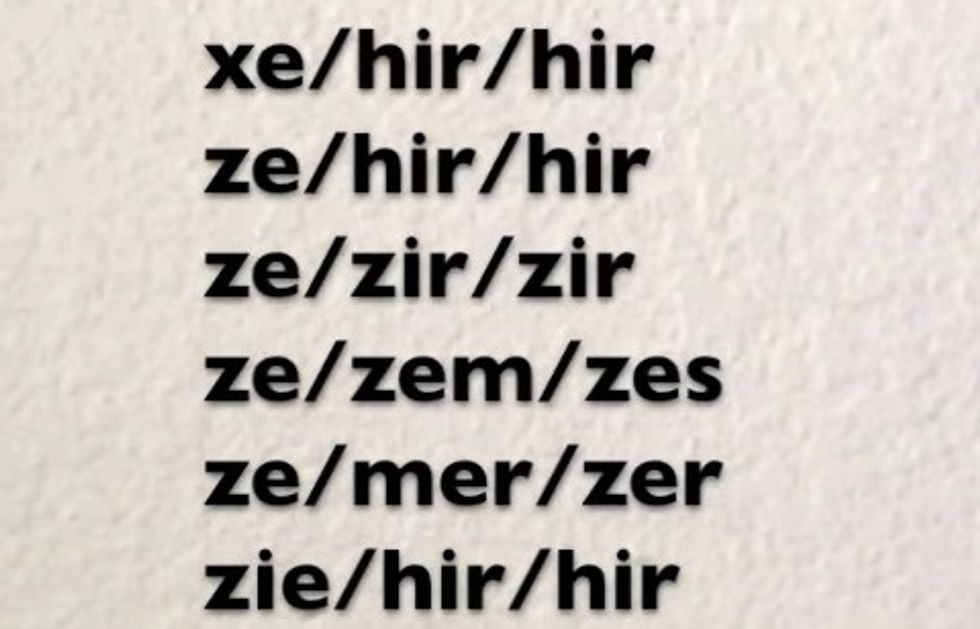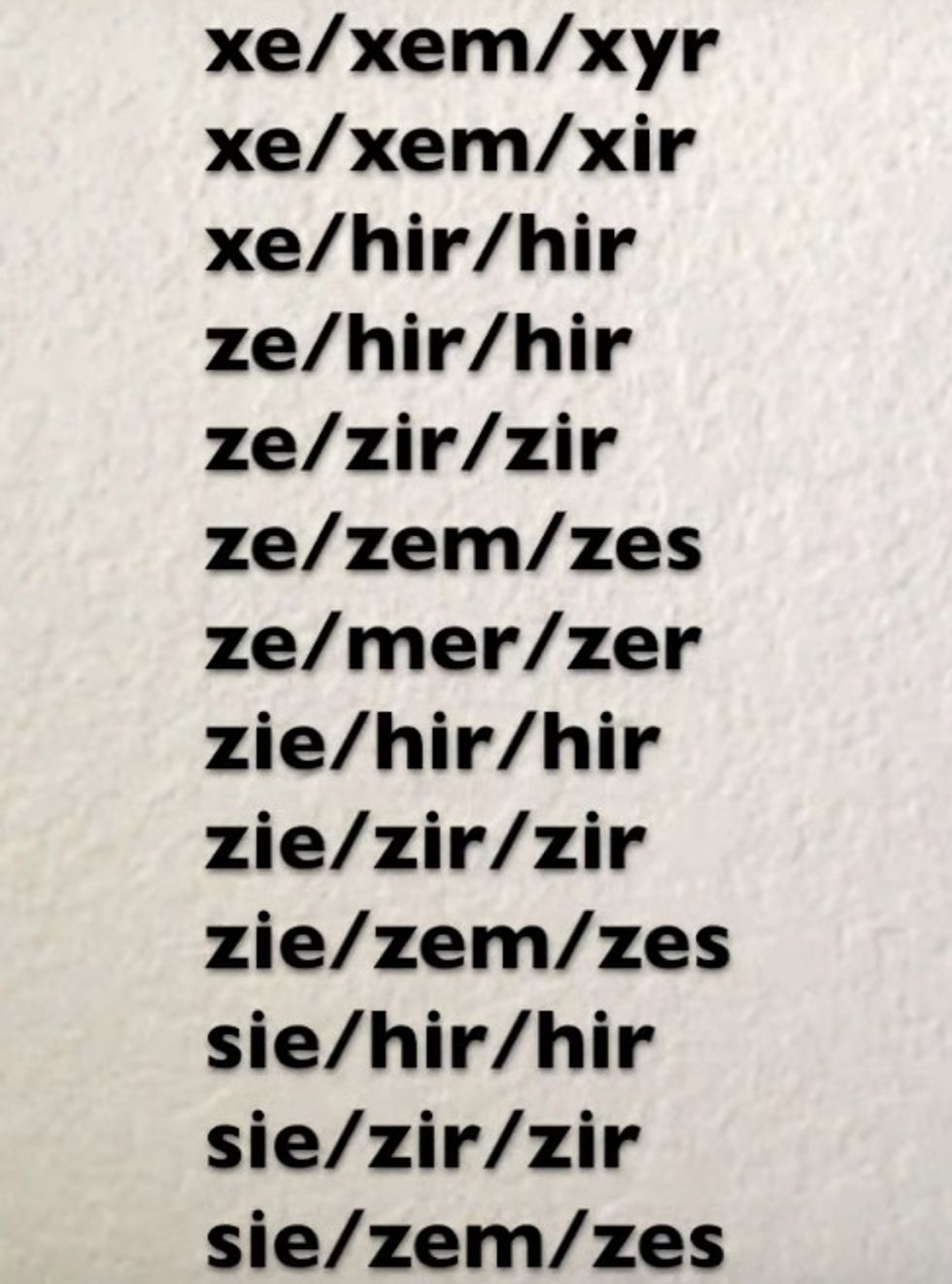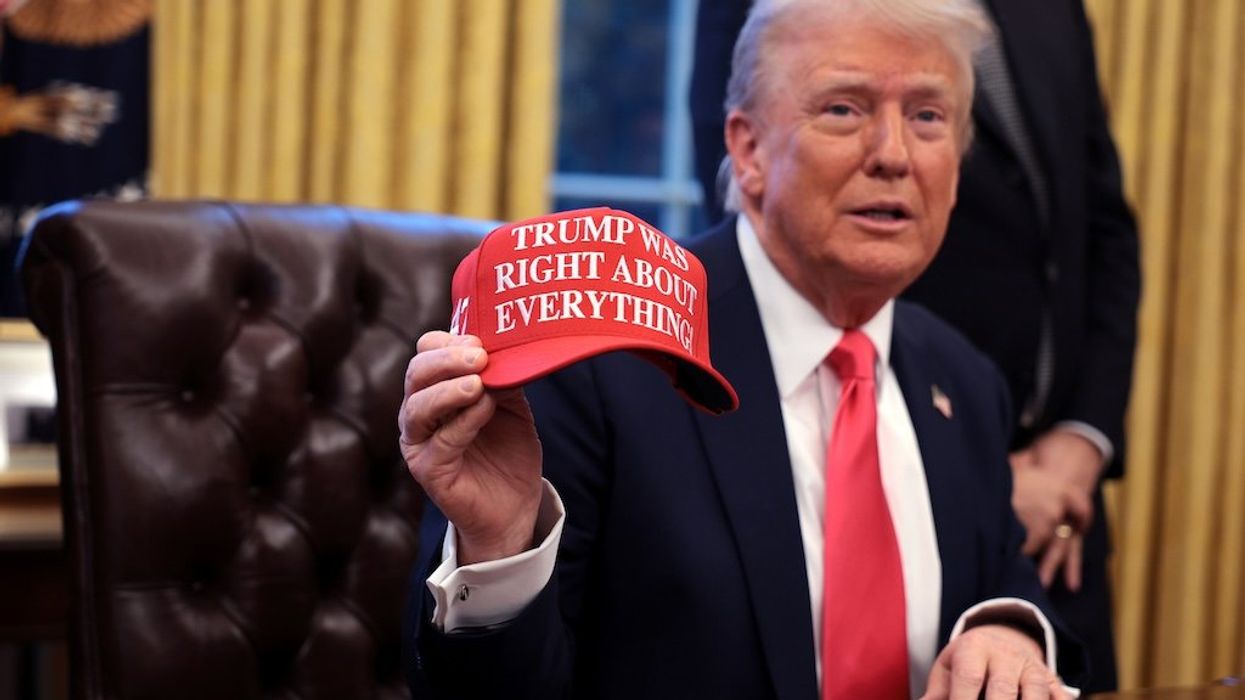
© 2025 Blaze Media LLC. All rights reserved.
Legal Expert Slams NYC Human Rights Commission Guidelines on Gender Pronoun Use — and if You're a Violator, the Penalties Are Steep
May 18, 2016
"So people can basically force us — on pain of massive legal liability — to say what they want us to say ..."
Upon investigating the New York City Commission on Human Rights' legal enforcement guidance on failure to use people's preferred names or pronouns, legal expert Eugene Volokh has concluded you'd better mind your Ps and Qs when you're in the Big Apple.
Or more to the point, he wrote, every last "Ze" and "Hir" — and any other gender identifier people decide fit them.

In his Washington Post op-ed, Volokh pointed to the commission's wording on the issue, adding his reading of the legal guidance in brackets:
The NYCHRL [New York City Human Rights Law] requires employers[, landlords, and all businesses and professionals] to use an [employee’s, tenant’s, customer’s, or client’s] preferred name, pronoun and title (e.g., Ms./Mrs.) regardless of the individual’s sex assigned at birth, anatomy, gender, medical history, appearance, or the sex indicated on the individual’s identification.Most individuals and many transgender people use female or male pronouns and titles. Some transgender and gender non-conforming people prefer to use pronouns other than he/him/his or she/her/hers, such as they/them/theirs or ze/hir. [Footnote: Ze and hir are popular gender-free pronouns preferred by some transgender and/or gender non-conforming individuals.] …
"So people can basically force us — on pain of massive legal liability — to say what they want us to say," Volokh wrote, "whether or not we want to endorse the political message associated with that term, and whether or not we think it’s a lie."
He added:
We have to use “ze,” a made-up word that carries an obvious political connotation (endorsement of the “non-binary” view of gender). We have to call people “him” and “her” even if we believe that people’s genders are determined by their biological sex and not by their self-perceptions — perceptions that, by the way, can rapidly change, for those who are “gender-fluid” — and that using terms tied to self-perception is basically a lie. (I myself am not sure whether people who are anatomically male, for example, but perceive themselves as female should be viewed as men or women; perhaps one day I’ll be persuaded that they should be viewed as women; my objection is to being forced to express that view.) We can’t be required to even display a license plate that says “Live Free or Die” on our car, if we object to the message; that’s what the court held in Wooley v. Maynard (1978). But New York is requiring people to actually say words that convey a message of approval of the view that gender is a matter of self-perception rather than anatomy, and that, as to “ze,” were deliberately created to convey that a message.What’s more, according to the City, “refusal to use a transgender employee’s preferred name, pronoun, or title may constitute unlawful gender-based harassment.” The label “harassment” is important here because harassment law requires employers and businesses to prevent harassment by co-workers and patrons and not just by themselves or their own employees; this is particularly well established for harassment by co-workers, but it has also been accepted for harassment by fellow patrons. So an employer or business that learns that its employees or patrons are “refus[ing] to use a transgender employee’s preferred” pronoun or title would have to threaten to fire or eject such people unless they comply with the City’s demands. (The logic would also apply to landlords having to threaten to eject tenants who refuse to use co-tenants’ preferred pronouns or titles, but that’s less certain.)
Volokh wrote that "ze" or "hir" doesn't necessarily cover all the newfangled options. "Check out this list," he noted, "which already includes 'zie,' 'sie' (not the German version), 'ey,' 've,' 'tey,' 'e,' '(f)ae,' 'per' and 'xe.' Why wouldn’t some creative folks decide they want to add still more?"
And while it seems as though the legal guidelines don't apply to the general population, Volokh wrote that it "isn’t just the government as employer, requiring its employees to say things that keep government patrons happy with government services. This is the government as sovereign, threatening 'civil penalties up to $125,000 for violations, and up to $250,000 for violations that are the result of willful, wanton, or malicious conduct' if people don’t speak the way the government tells them to speak."
He concluded that "you should feel uncomfortable about people being forced to use 'ze,' which expresses a view about gender that they might not endorse. And, more broadly, I think we should all feel uncomfortable about government regulators forcing people to say things that convey and support the government’s ideology about gender."
(H/T: The College Fix)
Want to leave a tip?
We answer to you. Help keep our content free of advertisers and big tech censorship by leaving a tip today.
Want to join the conversation?
Already a subscriber?
Sr. Editor, News
Dave Urbanski is a senior editor for Blaze News.
DaveVUrbanski
more stories
Sign up for the Blaze newsletter
By signing up, you agree to our Privacy Policy and Terms of Use, and agree to receive content that may sometimes include advertisements. You may opt out at any time.
© 2025 Blaze Media LLC. All rights reserved.
Get the stories that matter most delivered directly to your inbox.
By signing up, you agree to our Privacy Policy and Terms of Use, and agree to receive content that may sometimes include advertisements. You may opt out at any time.



